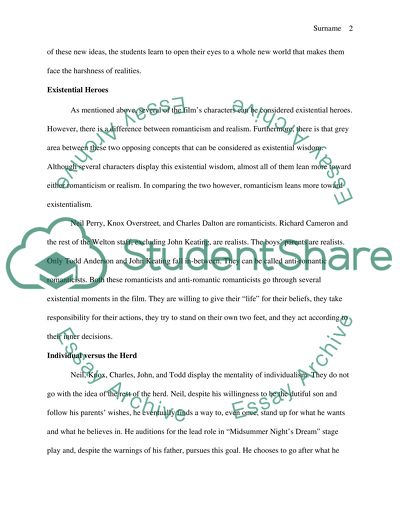Cite this document
(“Existentialism in Dead Poets Society: The Middle Ground between Coursework”, n.d.)
Retrieved de https://studentshare.org/literature/1390678-existentialism-in-dead-poets-society-the-middle-ground-between-romanticism-and-realism
Retrieved de https://studentshare.org/literature/1390678-existentialism-in-dead-poets-society-the-middle-ground-between-romanticism-and-realism
(Existentialism in Dead Poets Society: The Middle Ground Between Coursework)
https://studentshare.org/literature/1390678-existentialism-in-dead-poets-society-the-middle-ground-between-romanticism-and-realism.
https://studentshare.org/literature/1390678-existentialism-in-dead-poets-society-the-middle-ground-between-romanticism-and-realism.
“Existentialism in Dead Poets Society: The Middle Ground Between Coursework”, n.d. https://studentshare.org/literature/1390678-existentialism-in-dead-poets-society-the-middle-ground-between-romanticism-and-realism.


